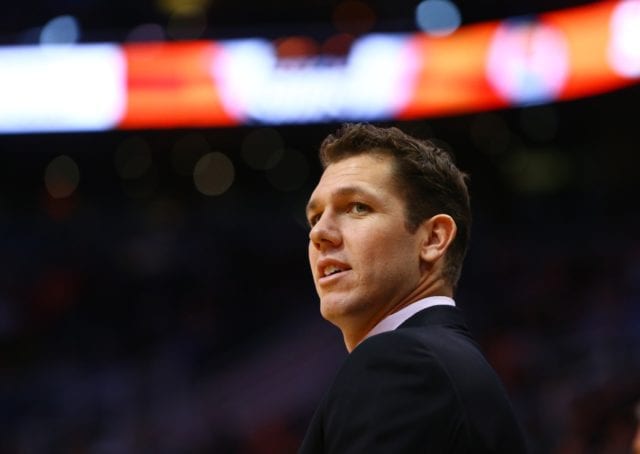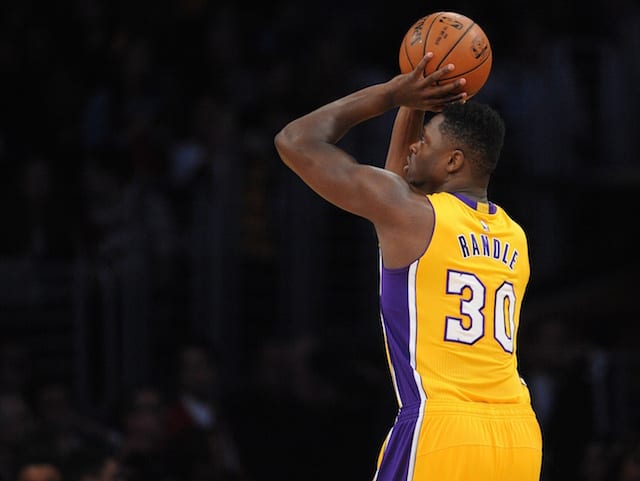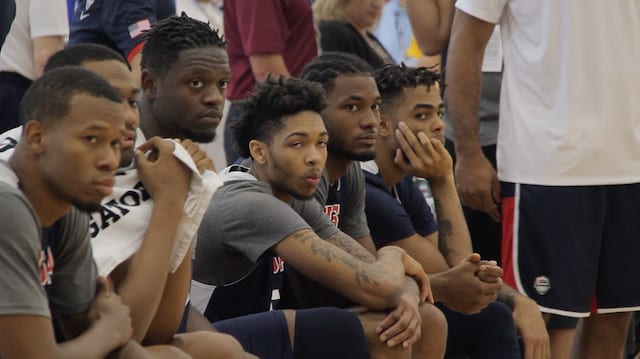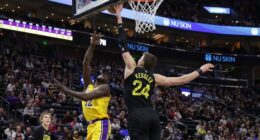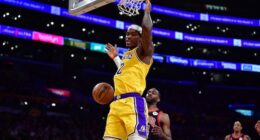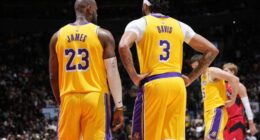The 2016 NBA free agency period is essentially over, and the roster for the Los Angeles Lakers is nearly set for the start of training camp this fall. The team is not projected to make the playoffs next season, but still, there is excitement about the future because of the young core the team has assembled. When the regular season starts, the squad is likely to include eight players who are 24 years of age or younger: D’Angelo Russell, Jordan Clarkson, Brandon Ingram, Julius Randle, Larry Nance, Jr., Anthony Brown, Tarik Black, and Ivica Zubac.
It took a while, but the front office finally understands that top free agents are unwilling to join the Lakers until the team is ready again to compete for a title, and thus the return to prominence is entirely dependent on some of these young players emerging over time as NBA stars. Most fans realize that patience is mandatory while the process evolves over the next three years.
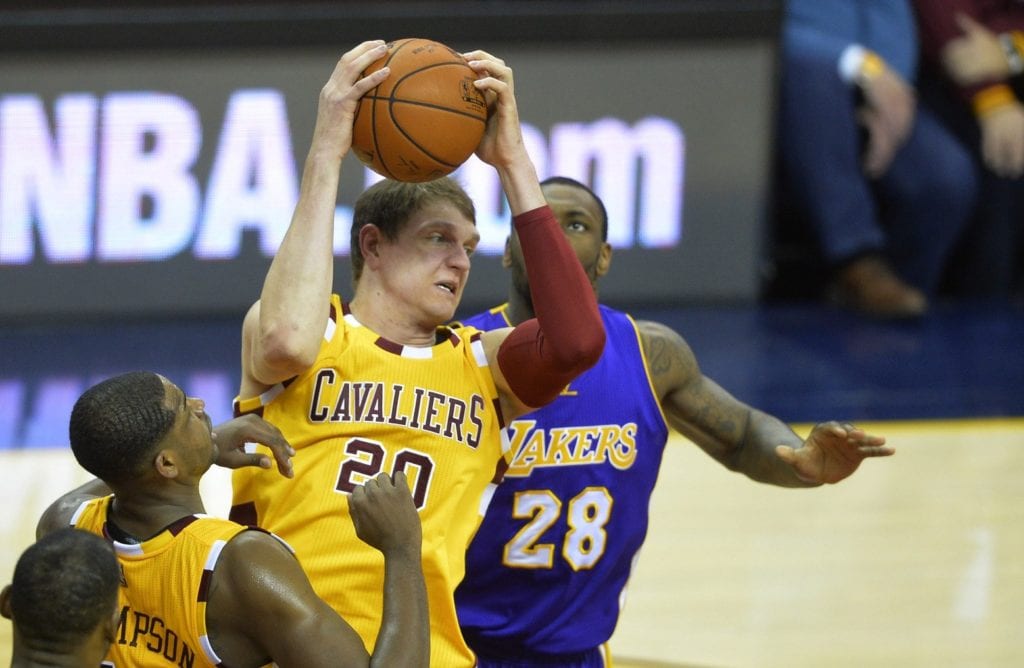
Rather than completing the roster with veterans who are in the 26-28 age range, the front office chose to go with players who next season will be between the ages of 30 and 34, including center Timofey Mozgov, small forward Luol Deng, wingman Nick Young, shooting guard Lou Williams, and point guards Jose Calderon and Marcelo Huertas. It is a curious regular-season roster with no one between 25 and 29 when most NBA players are in their prime. The veterans are an unexciting but competent group that is not likely to make any difference in the standings, just as last year Kobe Bryant, Roy Hibbert, Brandon Bass, Williams, and Young made no difference; except, of course, they received a lot of playing time which was thought to inhibit the progress of younger players.
For this year, whether Mozgov and Deng are overpaid is not the point, as there was no one else to take the Lakers’ money. The issue right now is, if Mozgov and Deng are so highly compensated, will the team will feel compelled to play them more at the expense of developing the younger players?
How will new head coach Luke Walton balance the minutes of the veterans and younger players? The team is paying $18 million a year to Deng and $16 million to Mozgov, and that is far too much money for either to sit on the bench. Moreover, they committed to paying those salaries for four years, meaning both players will be close to the end of their careers when their contracts expire. The only other player on the roster whose salary is even close to these figures is Clarkson, who has not yet entered his prime and will make around $12 million per season.
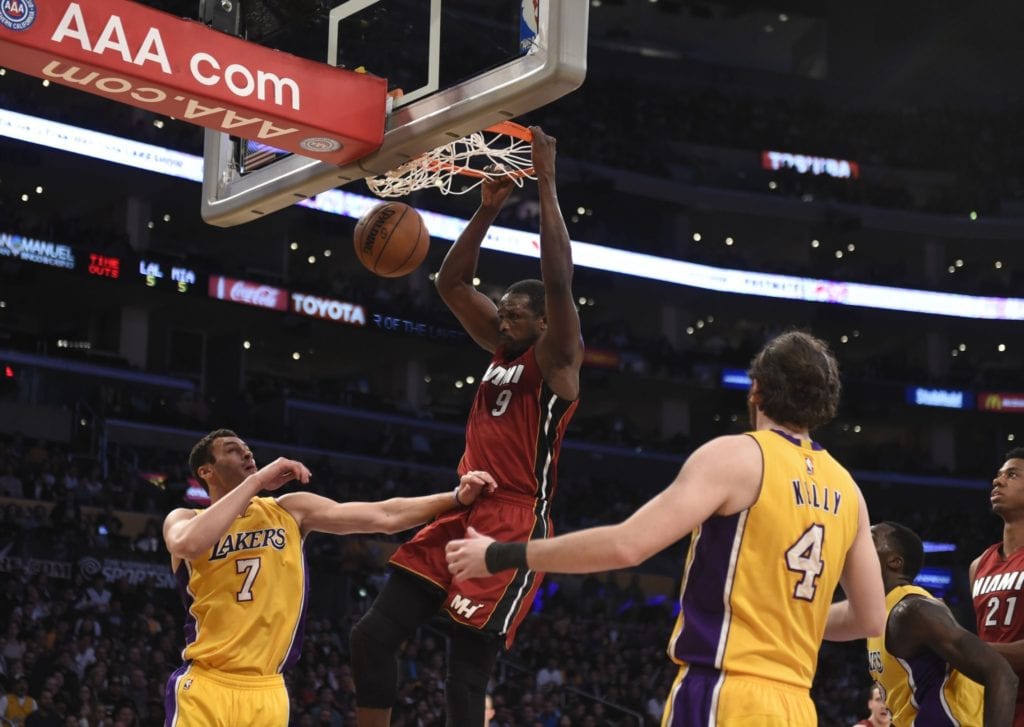
When Mozgov and Deng are a team’s two highest paid players, it speaks volumes about where the franchise is positioned at the moment. At this stage of their careers, they are pretty good mid-level players albeit arguably past their prime. Mozgov, in particular, has been unfairly criticized and is a better player than people are saying, but it is highly unlikely that he will ever be the center on a team that is contending for an NBA title.
Last year’s head coach, Byron Scott, did not relish playing or developing young players which is part of the reason he is no longer the coach. The Lakers were paying Hibbert $15 million, and as a result, while he played poorly from start to finish, Scott had no problem starting him every game. The veteran Bass was given the backup role at center, and he too played a lot while Black, who had shown promise in his rookie season the year before, hardly played all year.
The season before, Scott gave limited minutes to 25-year-old fan favorite Ed Davis, who sat much of the time in favor of the older and more highly paid Jordan Hill. At the time, Hill was making $9 million per season compared with Davis’ $1 million, consequently Hill was the starter and Davis bolted from the team after one season.
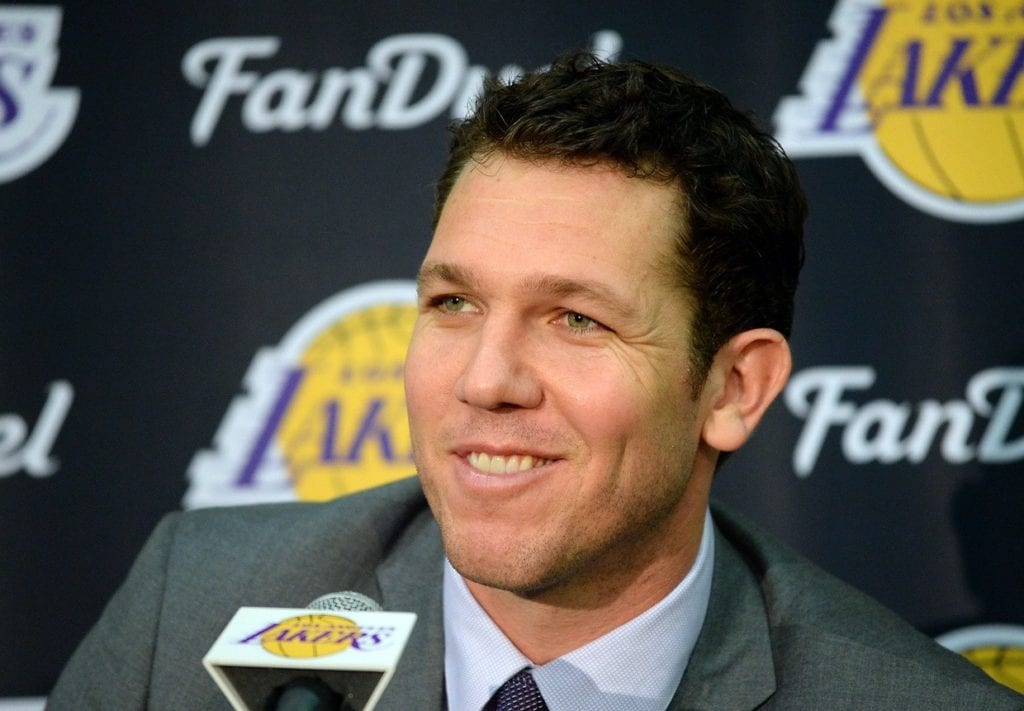
No one is likely to confuse Luke Walton with Byron Scott, but still, does the team really intend to use Mozgov and Deng in a subservient role when they are by far the two highest paid players on the squad? Is there any way that Mozgov sits when he is earning more than double what Black and Zubac are paid combined? If Mozgov is still the team’s starting center two or three years from now, it will only mean the Lakers have not progressed as much as expected.
This raises the question of why the team signed Mozgov at all if doing so required a long-term contract for so much money? Not only did they sign him, but they also leaped out of the gate the instant the free agency period started and seemingly made no effort to sign any other center including younger players like Festus Ezeli and Bismack Biyombo, who were available even if Hassan Whiteside and Al Horford were not interested. The Lakers have said that they signed the veterans to mentor the younger players, but putting aside that he is making far too much money to simply be a mentor, does Mozgov have a history of mentoring younger players? Is he a good role model?
Even if fans do not trust Jim Buss and Mitch Kupchak, they should be willing to trust Walton at least for the foreseeable future. In interviews, Walton has stated that he really wanted Mozgov and likes his game. This is one of those times when perhaps the team has better information than the fans, and maybe they feel that Mozgov has the skills to make a significant contribution in the right setting. The problem Walton faces is that unless Mozgov gets off to a blazing start, regardless of who is getting paid what, fans will want to see Black and Zubac play, not Mozgov, and they won’t be quiet about it.
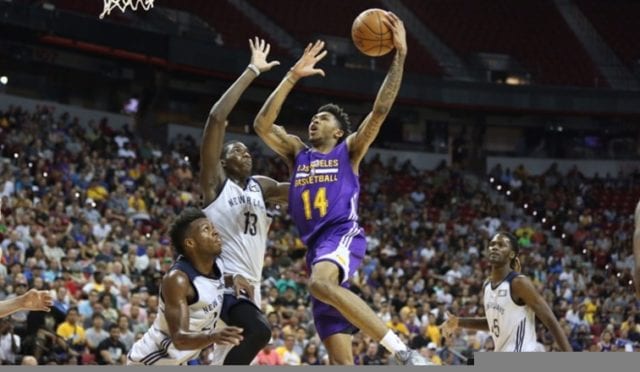
The same can be said for Deng, who has enjoyed a very good career even if his skills have waned compared to his All-Star seasons from a few years ago. The problem is, the team has a young player by the name of Brandon Ingram, who they just drafted number two overall out of Duke University. When someone is selected that high unless he is joining a top team that is already filled with stars (which is uncommon for the number two selection), there is an expectation that he will be an immediate starter and big-time contributor even in his rookie season.
Last year, fans were very impatient when Russell was benched and his playing time reduced — it became a topic of conversation (and a distraction) all year. The fans will be even less forgiving if Ingram does not start or if he plays less than 30 minutes a night. Even though his frail body is an issue, Ingram appears to be more NBA-ready than Russell was last year. He has to play big minutes, but are the Lakers going to pay Deng $18 million a year to sit on the bench and mentor Ingram?
Balancing the playing time of Deng, Ingram, Mozgov, Black and Zubac will present Walton with one of his biggest challenges. Fortunately, it will be easier to balance the minutes of the other veterans since they are all guards who are paid much less and were not signed to do anything other than backup Clarkson and Russell who should both play 30 (plus) minutes a night.
The Lakers’ future is squarely in the hands of the eight players on the squad 24 years of age and younger. If the team is going to struggle for the time being, fans would far prefer, and it makes much more sense, to let the younger players have the most minutes to help them develop. Mozgov and Deng are proven NBA players, but what the Lakers were thinking in signing them to huge, long term, and reportedly fully guaranteed contracts, is anyone’s guess. It would be hard to trade players with such contracts, and their salaries use up a great deal of cap space even in an era when the cap is rising.
It appears that Mozgov and Deng are going to be highly paid Lakers long term, which seems in conflict with the notion that priority number one for the franchise is seeing the younger players develop as far and fast as possible, which requires a lot of time on the court. How Walton balances their minutes will be a key to the upcoming season.
